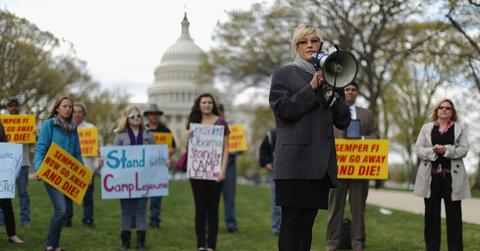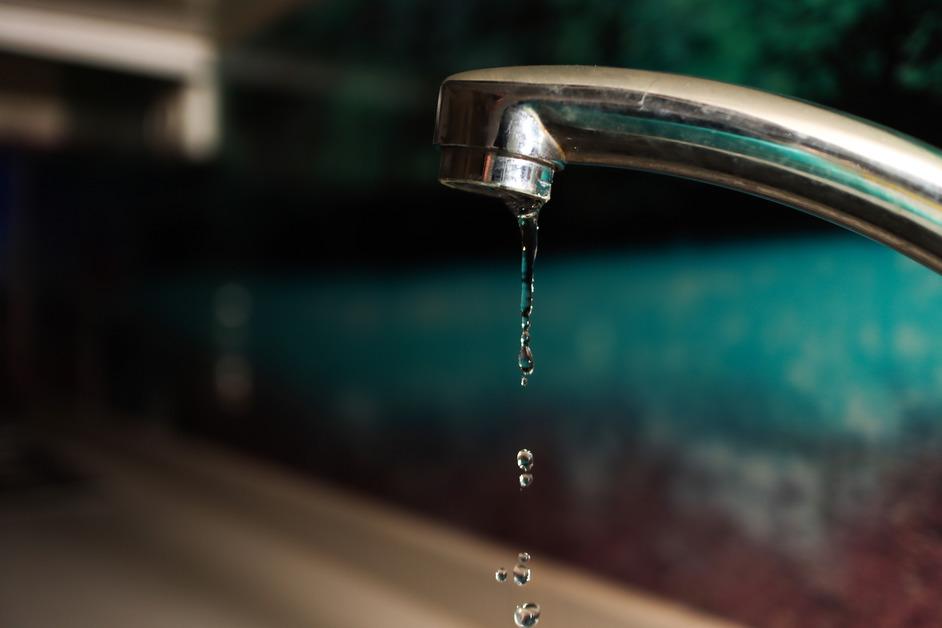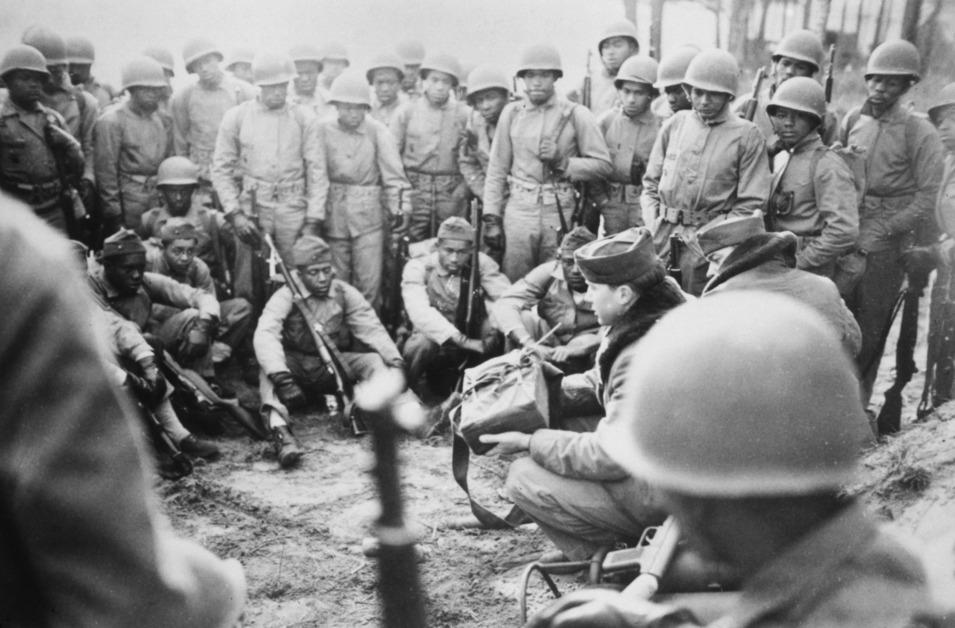When Will the Camp Lejeune Toxic Water Lawsuit Be Settled? An Update on the Proceedings
Veterans and families who lived at Camp Lejeune await settlements — and justice — after filing claims in a toxic water case.
Updated April 26 2024, 9:34 a.m. ET

Veterans and families who lived at the U.S. Marine Corps base in North Carolina, Camp Lejeune, are seeking justice after the base was revealed to have contaminated drinking water between the 1950s and 1980s.
Over a dozen health conditions have been tied to the toxic drinking water at Camp Lejeune, including leukemia, breast cancer, miscarriages, and birth defects. Those affected by the contamination have filed claims to receive compensation for their injuries, but many ask: when will the lawsuit be settled? Keep reading for everything you need to know.

Here's a brief update on the Camp Lejeune lawsuit.
As of April 26, 2024, Lawsuit Information Center reports that attorneys representing the plaintiffs have submitted a proposal to include serious illnesses such as esophageal cancer, scleroderma, aplastic anemia/myelodysplastic syndromes (MDS), pancreatic cancer and multiple myeloma in Track 5.
Also in April 2024, the government requested a 30-day extension to respond to new discovery requests, including a second set of requests for Track 1. The new deadline is now May 28, 2024, per Lawsuit Information Center.
What is the Camp Lejeune lawsuit?
Camp Lejeune, a U.S. Marine Corps base in North Carolina, is the site of one of the worst water contamination lawsuits in the country. According to CBS News, almost 1 million veterans and civilians living at Camp Lejeune between 1953 to 1987 could have been exposed to toxic drinking water where levels of toxins reached up to 400 times the safe limit.
Vinyl chloride, trichloroethylene (TCE), and tetrachloroethylene (PCE), were among the toxins found in Camp Lejeune's drinking water, per the Agency for Toxic Substances and Disease Registry (ATSDR). According to the U.S. Department of Veterans Affairs, these toxins have been linked to at least 15 health conditions found at Camp Lejeune, including infertility, birth defects, breast cancer, lung cancer, and leukemia.

Soldiers at Camp Lejeune
In August 2022, President Biden signed the Camp Lejeune Justice Act of 2022. The legislation gives military veterans the opportunity to file claims against the U.S. Government for exposure to toxic chemicals at Camp Lejeune, with payouts up to $550,000, per the United States Navy.
However, claimants must act quickly. According to the Camp Lejeune Claims Center, all claims must be filed before Aug. 10, 2024.
Since the bill was passed, almost 100,000 claims have been filed. However, not even one-fifth of them have been settled and paid. So, given this information, veterans, families, and everyone else questions when the lawsuit will be settled, and when money is expected to be paid, per CBS News.
When will the Camp Lejeune lawsuit be settled?
There is no telling exactly when all the claims will be settled. There are so many claims for the government to address, and a sluggish pace has led many veterans to believe they may never see their claim settled in their lifetime.
Before the Camp Lejeune Justice Act of 2022, claims had been filed against the U.S. government in regard to the base's contamination since 2009. Despite the 2022 act, which was meant to speed up the process for veterans to file claims and receive compensation for toxic exposure at Camp Lejeune, justice is still proving hard to come by.
The Camp Lejeune Justice Act of 2022 contains strict parameters, including having to prove that they were at Camp Lejeune for at least 30 days during the time the water was contaminated, detailing their hypothesis for their own contamination and what health issues ensued.
However, victims of the contamination point to difficulty in retrieving decades-old health records, and also how hard it is to prove some injuries. In some cases, records can be limited, or might not exist at all, per NBC News. This makes many feel insecure about the status of their claims.

Court-appointed lead counsel and plaintiffs attorney for Camp Lejeune, Ed Bell, told NBC News: “They had to wait 30, 40 years to file a claim. It wasn’t their fault that delay of time has caused the absence of records."
Birth defects and miscarriages are especially hard to prove. Many women living at Camp Lejeune have no record of the babies they lost before they were born, yet they have to somehow prove that the child died from contamination and not natural causes.
Another morbid issue with the pacing of the claims is that most of the veterans who lived at Camp Lejeune could be either very old, sick, or both by the time they file their claim.
According to CNN, many plaintiffs have not received any compensation in their lifetime because they died still waiting for their cases to be heard.
This article, originally published on Sept. 28, 2023, has been updated.